The Atikulate, the BATified, and the Obidient: An analysis of the 2023 Presidential Candidates
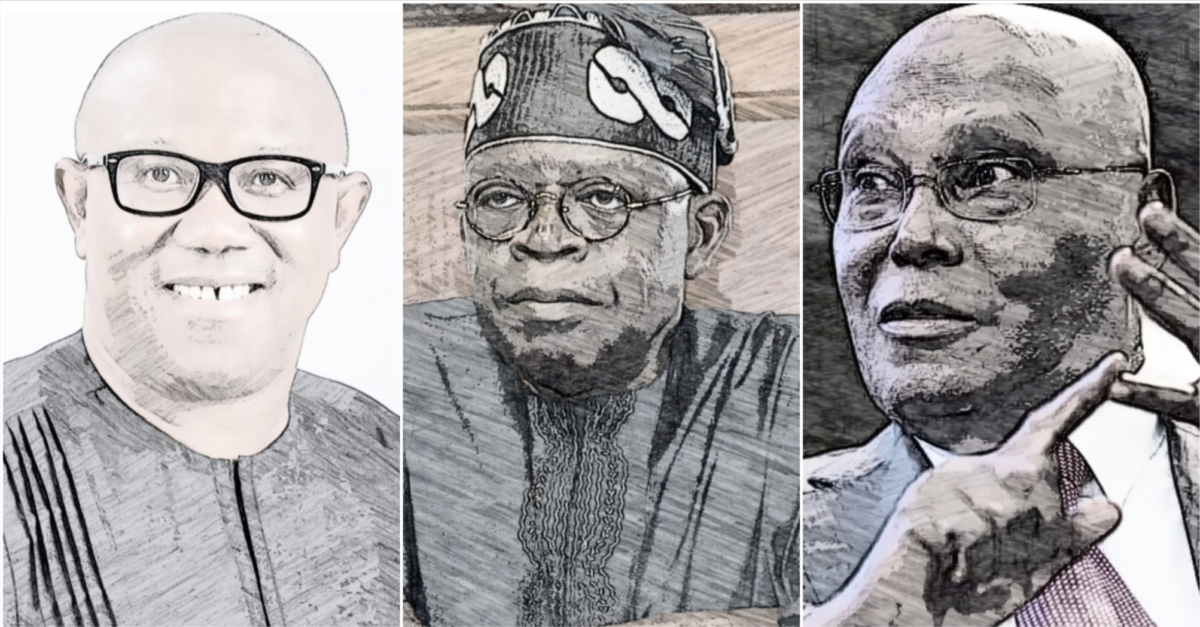
The electioneering season is in full swing and there are genuine reasons to be excited. Chief among these is the political consciousness on display by the country’s youthful population. There has never been so much anticipation and willingness to participate in the political process as the country’s current wave is witnessing. From metropolitan locations to the hinterlands, the youth want to be heard. They want to make a real difference.
However, based on current realities, excitement is not the only emotion one would feel. There is also worry, fear, deep trepidation based on the fact that in Nigeria, anything can actually happen. I mean, since the first general elections in 1923, when my grandfather was still a boy, elections in Nigeria have been characterized by electoral frauds, gerrymandering, voter suppression, vote-buying, and other tactics deployed by electoral parties/actors to ensure they win.
So what is responsible for this new wave of interest in Nigerian politics?
It would not be far-fetched to link the current youth awakening to the socio-economic reality of the country, characterized by an alarming rate of insecurity, disturbing unemployment levels, and an ever-increasing inflation rate that has seen the prices of goods & services increase by over a 100% within a year.
Another factor that appears to be a sore point is the nationwide #EndSARS protests of 2020 that rocked the nation’s core and its bloody ending. Young Nigerians lost their lives because they demanded better treatment from their government, and no one has been held accountable. Throw into the mix the fact that the next candidate would likely serve two terms, thereby leaving many of today’s youth in completely different stages of their lives, and the importance of this election increases several-fold.
But who are the men vying for the highest position in the Nigerian government, and how suitable are they for solving the country’s problems? This writer attempts to answer these questions in the following paragraphs.
Bola Ahmed Tinubu
The kingmaker who wants to be king. BAT has been a prominent member of the political class since the third republic. He was one of those who fought for the return of democracy during the military era, and at some point, he had to go into self-imposed exile. When Abacha died and the coast was clear for a return to democracy, he became Governor of Lagos State and served two terms. During that time, he rejigged the civil service by providing better incentives for civil servants, commissioned road construction projects, and created 37 Local Council Development Areas (LCDAs), an act that led to a drawn-out tussle between him and then President Olusegun Obasanjo. He has also been credited with laying the groundwork for the development of Lagos State, but laudable as these may appear, his reverence lies in how he has ensured that his party has remained in control of the country’s economic hub since the 4th republic began. He is also a godfather of repute, as not a few past and present governors, National Assembly members and other elected/appointed officials – mostly from the Southwestern part of Nigeria owe their position to him.
For all the formidable things about BAT, doubts remain about his suitability for the highest job in the land. One significant source of concern is his age. At 70, he is the second oldest candidate contesting the 2023 presidential election. Many of the young voters do not believe he understands the challenges facing young Nigerians in the world today.
Another source of concern is his health. Of course, you need not be as fit as a prizefighter to be President, but videos – including one where his quivering fingers struggled to flip the pages of his manifesto – and reports in public circulation raise several questions about his physical wellness in relation to the role. The outgoing President Muhammadu Buhari spent a chunk of his time in government traveling abroad for health reasons, and many Nigerians do not want to experience that again.
Besides the health concerns, the controversies surrounding his formal education, or lack thereof, could mar his bid. There is also that case where he was alleged to have been part of a drug-trafficking cartel in the USA decades ago. Although he claims he made his fortune as an accountant working for Deloitte, Mobil and other reputable organizations, the former Executive Governor of Lagos State has no identifiable source of income nor employment record since he left office.
The APC presidential hopeful is well known for his political patronage system and Godfatherism. He has publicly embraced cronyism, nepotism, and his godfather status. He sees the Presidency as a birthright rather than a comprehensive plan to take the country out of the trenches it currently is in.
But make no mistake, he is a battle-hardened candidate who is very experienced in politicking, politricking and doing whatever it takes to win, including deciding to run with a fellow Muslim.
Kashim Shettima (Running Mate)
Kashim Shetimma is a sitting senator and former Governor of Borno state, the epicenter of the Boko Haram insurgency. He is mostly remembered as the governor who was in power when the “Chibok Girls” were abducted. This was after he allegedly ignored the recommendations from the presidency to shut down schools.
A former General Manager at Zenith Bank, Shettima’s tenure as Governor was marred by constant terrorism attacks in his state. Sometime in 2012, a Boko Haram kingpin – Kabiru Sokoto – bombed a church killing more than 30 people. He was later arrested at the Borno Governor’s lodge in Abuja, fueling the rumors that Shettima was in bed with the terrorism group.
The BATTIMA Ticket
The Bola Ahmed Tinubu/Kashim Shettima ticket is the only one without a Christian candidate, an act considered as a move to islamise the country and a slap on the face of Christendom. Even though Nigeria is a secular state, the unwritten rule of inclusion suggests that there is an ethno-religious balance in occupying the top 2 offices in the land.
Both candidates also offer nothing new in terms of changing the trajectory of Nigeria. They are part of the old guard and have committed to continuing the legacy of the incumbent President Muhammadu Buhari – a legacy of pain, suffering and utter failure. Tinubu even wants to recruit 50 million youths into the army and feed them corn and ‘agbado’, while Shettima is completely opposed to restructuring the country – something experts have agreed is necessary to make this country better.
Despite these, this ticket remains a top contender for the presidency. The APC is currently in power, and having the most elected officials also means that they have access to more people at the grassroots level. They have more money to spend than any other candidate They also have the backing of the presidency and as a result, most civilian and law enforcement institutions. And I can bet that they are willing to use all of these to their advantage. You know what that meins?
Atiku Abubakar
Alhaji Atiku Abubakar needs no introduction. The Wazirin Adamawa was Vice President of Nigeria between 1999 and 2007, a pivotal period in the history of Nigeria. He was largely in charge of the economic team that ran arguably Nigeria’s best administration in the Fourth Republic.
The second biggest employer of labour in Adamawa State, Atiku Abubakar who retired as Deputy Director of the Nigerian Customs has been an entrepreneur since the 1970s. His interests cut across real estate, logistics, oil-servicing, manufacturing and education. Over the years, his positioning as a technocrat, coupled with the somewhat relatable personality cultivated through effective use of social media and his Northern ancestry, make him a formidable adversary for anyone. Some would even say he is the PDP’s best chance of regaining power from their biggest rival.
Despite these positives, a big clog in the wheel of his ambition is that he is 75 years old and officially the oldest candidate contesting the 2023 presidential election. This is a significant hurdle in a country with a median age of 18.1 years, especially as the reality of the soro-soke generation is different from that of the old heads. It also doesn’t help his case that he has contested for presidency 5 times and has been running for the highest office in the land since 1993, longer than most Nigerians voting in 2023 have been alive.
Another obstacle to his ambition is the toga of corruption he’s been unable to shed since the EFCC declared him unfit for public office in 2007. While he claims it was politically motivated following his refusal to support the Obasanjo Third Term Bill, he was also implicated in a bribery case that resulted in the imprisonment of former Louisiana congressman, William Jefferson. The Congressman was sentenced to 13 years in prison for taking bribes from American companies interested in doing business in Nigeria and Ghana. Alongside his wife, Atiku was also named in the International Consortium of Investigative Journalists’ publication on global corruption cases involving some of the most corrupt leaders in the world. The former Vice President has repeatedly denied wrongdoing in these cases, and although he has never been charged nor tried in court, he cannot seem to shake off this perception.
But perhaps the biggest grouse a lot of young liberal people have towards his bid is that he deleted a tweet condemning the murder of Deborah, a Christian lady who was mobbed by a Muslim crowd for ‘blasphemy’. He also made a post on Facebook saying he did not approve the message, following backlash by Northerners. That singular act turned a lot of previous supporters off and could be his biggest undoing.
Ifeanyi Okowa (Running Mate)
A Medical Doctor and former Senator, Governor Ifeanyi Okowa has been running the affairs of Delta State since 2015 and is currently serving his 2nd term in office. An experienced politician, Okowa was Chairman of Ika North-East Local Government Council in the early 90s. From 1999 to 2006, he served as Commissioner for Agriculture, then Water Resources Development and Health in Delta State. In 2007, he was appointed Secretary to the Delta State Government, and in 2011, he became a senator.
Since becoming Governor, he has facilitated the establishment of 3 Universities in Delta State: The University of Delta in Agbor, University of Science and Technology in Ozoro and Dennis Osadebe University in Anwai. As a result of his efforts in the health sector, Delta State became the first in the country to commence Universal Health Coverage. The state was ranked the Best State in Human Capital Development in the 2017 States Peer Review by the National Competitiveness Council of Nigeria. According to the Nigerian Bureau of Statistics (NBS) 2020 report, Delta State was the Second Least Poor State in Nigeria, only ‘bettered’ by Lagos State.
However, Okowa is not without blemish as his administration has been accused of corruption multiple times. The Delta State Auditor General’s annual report for 2019 was investigated by the International Centre for Investigative Reporting who found irregular expenditures, disregard for financial regulations, and evidence of financial misappropriation in the report. He has also been accused of neglecting Warri, Asaba and other communities in the state, whilst focusing on his region. He terminated the First Class Scholarship program established by his predecessor, jeopardizing the lives of some of the brightest minds from Delta State and recently, pensioners held a protest over unpaid pensions and gratuities.
The ATIKOWA Ticket
Amongst all the contestants, ATIKOWA is the only ticket with a clear documented policy roadmap on how they plan to lead Nigeria. Unlike the APC ticket, the PDP ticket is balanced from an ethno-religious point of view. Both candidates are also experienced politicians and are running on the platform of a legacy party, which – even though suffered a monumental loss in 2015 – has remained a force to reckon with.
However, some of the toughest hurdles they will face – aside from the main opposition candidates – is the fact that there is an internal crisis currently brewing in the party. Key players include Governor Wike of Rivers State who came second in the PDP Presidential Primaries, and was a favorite to clinch the party’s VP nomination before being sidelined for Okowa. There is also that sentiment that power is supposed to shift back to the south, following Buhari’s eight years as president. Lastly, many people believe that the PDP and APC are the same, and would rather vote for a third option.
Despite these, the ticket remains formidable and has a decent chance of winning.
Peter Obi
Peter Obi is the underdog who is taking the country by storm. He has transcended the status of a candidate to a movement at this point. He represents hope to a class of citizens who want a fresh perspective on the national leadership, not politicians who are out of touch with the needs of the country and its citizens. In an election cycle where the writer can describe the other top candidates’ leadership styles as paternalistic and transactional, Peter Obi seems like the transformational and democratic leader the country needs. His track record in Anambra State, matter-of-fact opinion on issues, and media-friendliness are three of the many reasons the public adores him. His long-term perception as a frugal man does not hurt either, particularly considering the profligacy that litters the country’s history.
Born in 1961, Peter Obi holds a degree in Philosophy from the University of Nigeria. While a student, he was also a businessman and continued in that direction after graduating. He was hugely successful, starting, owning and investing in many businesses, and eventually rising to the top of Fidelity Bank, where he was chairman – the youngest in the bank’s history – before venturing into politics.
His foray in politics was dogged by challenges and obstacles. He ran for Governor of Anambra State in 2003 under the platform of the APGA, a relatively new party then. When the results were announced and Chris Ngige of the PDP was declared the winner, Peter Obi challenged it. After a 3-year legal battle, he was declared winner and sworn in as governor. One would think that that was the end, but he had to go to court again to preserve his mandate; first after he was impeached by a state assembly full of opposition party members, and another time when general elections were held in 2007 and Andy Uba was declared the winner.
When he was not busy at the courts, he spent his tenure leading Anambra to glorious heights. His administration has been described as the best in the history of the state. From funds management to investment, education to infrastructure, health to security, employment to human capital development, the South-Eastern state experienced a seismic shift in their fortunes. This track record is what he is running on today, and he has repeatedly asked those who doubt his achievements to go and verify.
While he is seen as the candidate with the least baggage, Peter Obi has had his share of negative press. When he was governor, there was that case of N250 million found in a car with his aide. The Pandora Papers investigations also alleged he illegally concealed some of his wealth in offshore accounts. Regardless, the Peter Obi train appears to be growing daily, and it is not improbable that the movement has discombobulated the supporters of the other larger parties, hence the constant media assault directed at him.
Be that as it may, winning a national election is no walk in the park, especially when you are from a minority region, and you’re not the flagbearer of a major political party. For all the goodwill Obi enjoys, he needs to expand his reach to the country’s most remote locations while having an astute voter education to penetrate the underserved. He also needs to have a properly documented policy document and a roadmap that outlines his plans to fix Nigeria – something people can reference and hold him accountable with, if he wins.
Yusuf Datti Baba-Ahmed (Running Mate)
A businessman, trained economist and politician from Zaria, Yusuf Datti Baba Ahmed is the Vice Presidential candidate of the Labour Party. A former member of the House of Representatives, he is the only contender who has not won a governorship election in Nigeria. During his time as a lawmaker, he was quite popular for his principled activism and was one of those who opposed President Obasanjo’s third term bid. He was elected Senator in 2011 before the courts overturned his mandate in 2012.
While he is relatively the least experienced politician amongst the contenders, Yusuf Datti Baba-Ahmed’s non-extensive political CV is no disadvantage. The Kaduna State technocrat has a BSc & MSc in Economics from the University of Maiduguri, an MBA from the University of Wales, and a PhD from the University of Westminster. He worked at the Nigerian Security Printing and Minting Company before venturing into politics. He is the founder of Baze University and the leader of the Baze Group.
After he was selected as Peter Obi’s running mate, an old video of him speaking about same-sex relationships surfaced. While a lot of people believed he meant “gay people should be killed”, he has debunked that, saying he only meant that “same sex desires” should be killed.
The OBIDATTI Ticket
At 61 and 53 years respectively, The Peter Obi/Yusuf Datti Baba-Ahmed ticket is the youngest ticket amongst the top contenders. They are an ethno-religiously balanced duo, and the fact that Obi is from the South East, a region that has never produced a President surely helps their cause. They are also the most media-popular candidates as they are fresh, eloquent, have the least baggage, and considered the best opportunity to positively change the fortunes of the nation.
However, elections the size of Nigeria are not won by media sentiments. The Labour Party is currently not as wide-spread as the PDP and the APC. Both legacy parties have a longer, more robust history, and their tentacles are spread across the nooks and crannies of Nigeria. OBIDATTI’s relative inexperience in national politics also means that their reach outside their base is limited, and even in their home base, they face opposition from stakeholders who can match their political influence.
Despite these, the support base of the LP continues to grow. At a recent rally in Nasarawa State – where neither of the candidates have direct affiliations – thousands of Nigerians marched in support of their candidacy. Across Nigeria, support groups continue to spring up, physical campaign events continue to be held and support for the OBIDATTI ticket continues to grow exponentially. While they are still the underdogs, anybody who writes them off is not very wise.
The Analysis
So what are the chances of the candidates? If the elections were held today, what would likely happen? This is the opinion and position of the author:
- The candidate of the ruling APC, Bola Ahmed Tinubu, is currently the favorite to win the 2023 General Election. The fact that his party is in power, and has more people contesting across levels surely helps their cause. The writer believes the candidate has a 40% chance of winning the next election.
- The PDP ruled the country for 16 years and hopes to return to power in 2023. With their extensive structure, major candidates contesting positions across levels, deep pockets, etc., the party has a 30% chance of winning the election.
- Even though he ticks all the boxes on paper, Peter Obi and his supporters still have a long way to go if they want to emerge victorious next year. Fortunately, the general election is months away, and things can change before then. But if the elections were to happen today, the candidate has a 25% chance of winning.
- The remaining 5% is split between the other candidates, and the undecideds.
By and large, the upcoming elections will be pivotal to the future of this country, which stands to reason why citizen participation is anticipated to reach unprecedented levels.
Chidi Okereke is a Writer and Digital Entrepreneur. Connect with him via @Chydee on Twitter.
We have recently deactivated our website's comment provider in favour of other channels of distribution and commentary. We encourage you to join the conversation on our stories via our Facebook, Twitter and other social media pages.
More from Peoples Gazette

Politics
Katsina youths pledge to deliver over 2 million votes to Atiku
“Katsina State is Atiku’s political base because it is his second home.”
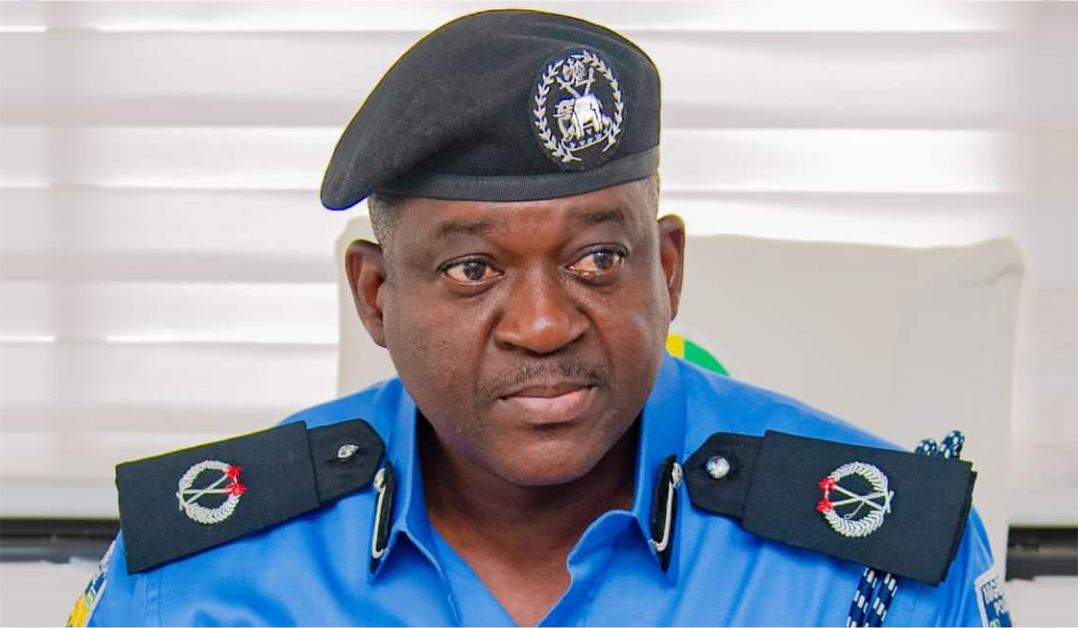
States
Alleged serial killer Shuwaldo arrested in Taraba: Police
The police say it arrested an alleged serial killer, Shehu Ibrahim, aka Shuwaldo, for killing and burying his victims in a terrorist enclave.
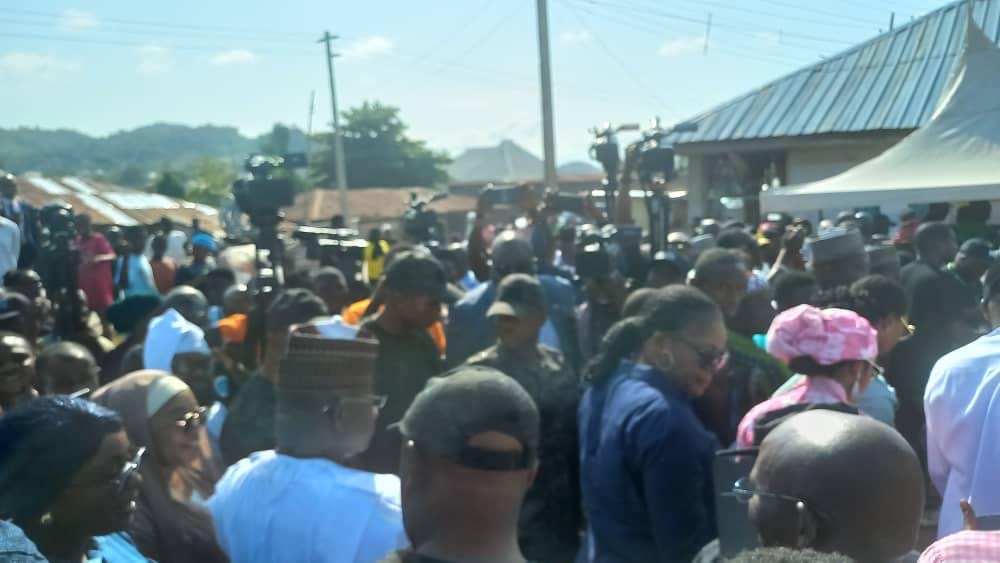
Anti-Corruption
Manhunt for Ex-governor: IGP Egbetokun withdraws policemen attached to wanted Yahaya Bello
The Inspector General of Police, Olukayode Egbetokun, has ordered the withdrawal of all officers attached to former Governor Yahaya Bello.
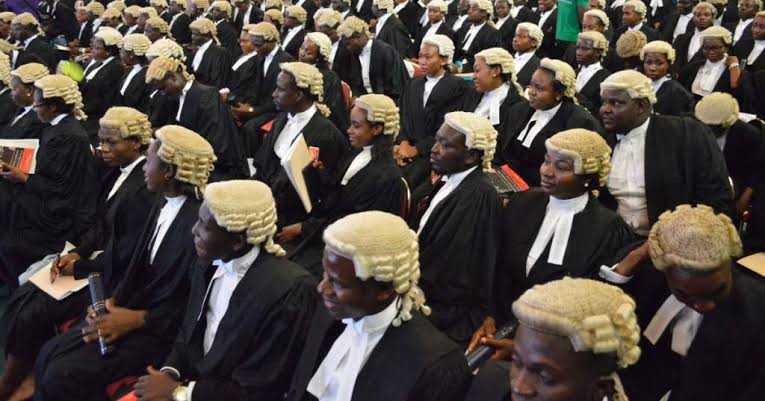
Rights
Court dismisses lawyers’ suit challenging appointment of judges in Kogi
The judge further held that assuming without conceding that the plaintiffs had locus standi, he wondered if instituting the action was the right course of action.

States
Welder jailed three months for stealing car battery
The Jos Magistrates’ Court, on Friday, sentenced a 43-year-old welder, Solomon John, to three months’ imprisonment for stealing a car battery.
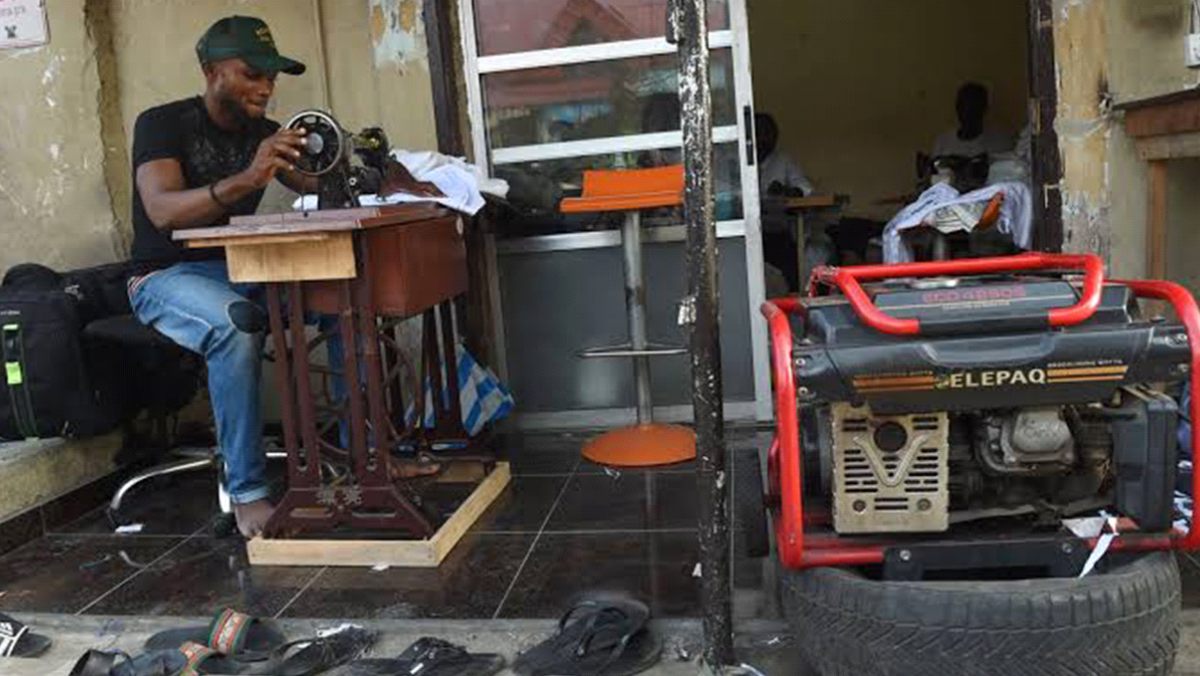
Jos
Tailor sentenced to nine-month imprisonment for assault
The magistrate, Shawomi Bokkos, summarily tried and sentenced the defendant after he pleaded guilty to the charge.
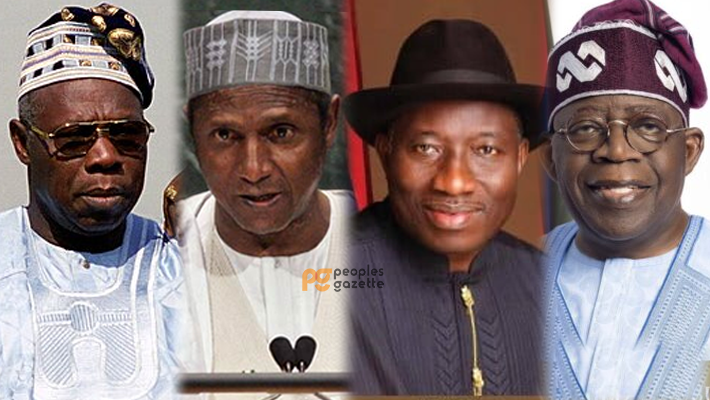
NationWide
Tinubu clearing PDP’s mess; security has improved in Nigeria, naira is best-performing currency globally: Presidency
“The results are already showing. Contrary to the pessimism and wishes of some PDP leaders, the national currency has become the world’s best-performing,” said the government.








